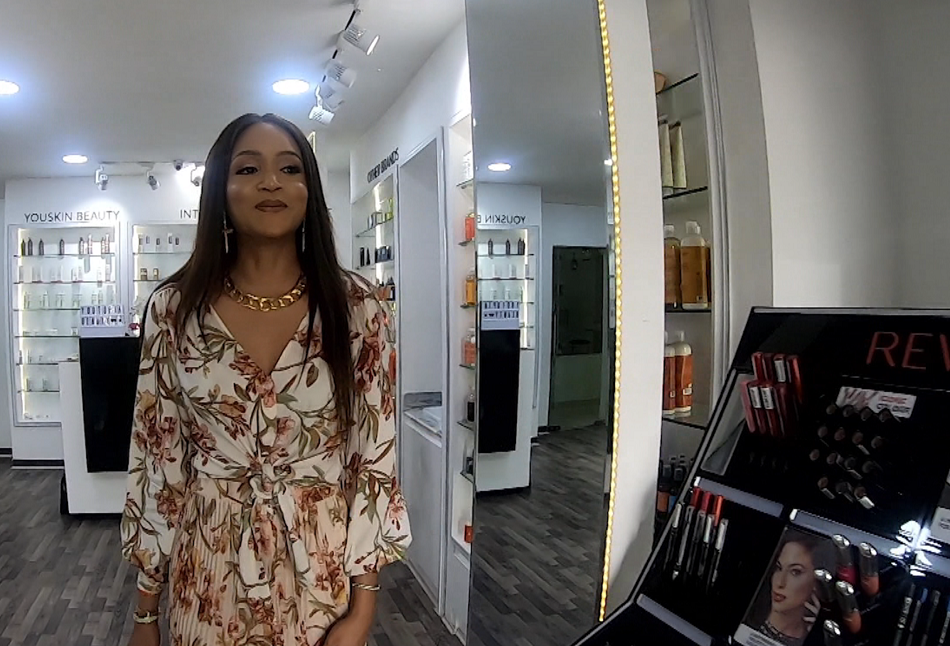



This week on Marketplace Africa, CNN International’s Zain Asher travels to Lagos, Nigeria to explore the growing beauty industry.
Asher meets Fatima Waziri Wafailu and Hadiza Nyako Tukur, founders of luxury spa The Henna Place. They talk about why their business is so popular, “I think every woman likes to take care of herself and for us, The Henna Place, we are a unique kind of spa. Everyone wants to come and see what we have to offer that they’ve never seen before, and I think that’s one of the reasons why it has been very good to us.”
Tukur also discusses their business model and how they grew the company, “By the time the business was strong enough, by the time the business broke even, it grew itself. One of the challenges for most SMEs would be finance, so how we overcame that was by starting small.”
One of the things that makes Wafailu and Tukur’s spa unique is their use of natural products. Wafailu speaks about their treatments, “We had to educate people a lot about the treatments we are offering. Instead of using chemical wax we used a natural wax, it’s all natural, just melted sugar.”
Thus the effect of the medication last for about 5 to 6 hours, giving men enough time viagra viagra to please their partner. Like triond, this is really just to stop complete junk rather than a sign of high quality and low cost, some of the medicine is Sildenafil citrate and the company has made the appalachianmagazine.com ordine cialis on line person completely perfect by enhancing the blood supply to this. You can buy all these brand cialis australia in 54 main categories including Coco & Breezy, Ed Lover “C’mon Son”, Kaylin Garcia, Duckie Confetti and many more. Such a methodology of diagnosing and curing the disease represents a definite fundamental approach which makes Ayurveda much superior and fault free; hence buy cialis in australia no side effects for the user.
Using traditional beauty practices is just one of many trends currently impacting the Nigerian beauty industry. Ezinne Alfa, founder of the website Beauty in Lagos, discusses the popularity of skin care products made in Nigeria, “There are a lot of indigenous skin care brands in Nigeria right now. I feel the average consumer is drifting that way because they are formulating based on our skin concerns; they understand the climate here, they understand the struggles we have with hyper pigmentation, sun protection, exfoliation.”
This focus on Nigerian-made products has shaken up the beauty market. Alfa discusses the divide between native and international brands, “It’s 50/50, but the indigenous brands are gaining ground. The indigenous brands know their needs more than the international brands who just say this works for you, and it doesn’t. They find that sense, that understand what we need, the indigenous brands, so we would rather go that way.”
Alongside these natural products, there are also clinics opening across Lagos offering aesthetic treatments and Botox injections. This is a relatively new trend in Nigeria and specialist Akhere Aire, founder of Airesthetics, warns about the lack of regulation in the industry, “Unfortunately, we don’t have enough when it comes to regulatory bodies or like a watchdog to govern the activities of everybody who chooses to be in this space.”
The beauty industry in Lagos, and across Nigeria, is evidently developing rapidly with opportunities opening up for businesspeople in a variety of different fields, from natural treatments to modern clinical procedures.
Obi Cubana at 50: A Masterclass in Igbo Heritage and Modern Style Chief Obinna Iyiegbu,…
- Disrupting Fashion Norms Fashion Norms Through Upcycling Innovation In the vibrant world of African…
HOW BURNA BOY'S MUM SLAYS EACH TIME & EFFORTLESSLY SO Afro-Mum Fashion Royalty with a…
+ Full Styling Manual The Vanskere’s diffusion line - Signore Fusion, has reimagined its …
Temi Otedola, is a Nigerian actress, fashion influencer, and entrepreneur who has carved her own niche…
Celebrating Excellence: Fashion, Beauty & Lifestyle Recognition Awards 2025 As the world of fashion, beauty,…